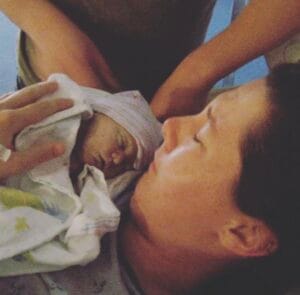(Oregon Right to Life) — A quadriplegic former truck driver chose physician-assisted suicide in March after experiencing serious neglect at the hands of hospital employees months earlier.
Normand Meunier, 66, died at his Quebec, Ontario home on March 29, 2024. He decided to pursue “Medical Assistance in Dying,” or “MAiD,” Canada’s name for legal assisted suicide, just months after developing a severe bedsore while in the hospital for a different reason, CBC reported.
The former truck driver, who became paralyzed in 2022 as the result of a serious injury, checked into a hospital in January 2024 to seek treatment for a respiratory virus, according to CBC. While there, staff reportedly kept him on a stretcher in the emergency room for four days, failing to regularly change his position. The alleged neglect ultimately led to the development of a painful bedsore that was so serious that Meunier’s muscle and bone became exposed.
RELATED: ‘Inexcusable’: Hospital Staff in Prague Accidentally Abort Wrong Baby

Photo Credit: CBC News: The National /YouTube/Screenshot.
“Ninety-five hours on a stretcher, unacceptable,” Sylvia Brosseau, Meunier’s partner, said in comments to Radio-Canada, per CBC. “I don’t understand how this can happen, because a mattress is the most basic thing.”
Told that his severe bedsore would take months to heal, Meunier expressed not wanting “to be a burden” and chose to pursue assisted suicide. According to CBC, his death has sparked outrage from a Canadian disabilities group, as well as an internal investigation on the part of the local health authority.
Meunier’s story sheds light on the concerns expressed by critics of legal assisted suicide and its global expansion. The Canadian government legalized MAiD in 2016, and it’s far from alone. Countries and states across the world, including Belgium, Canada, Ecuador, Spain, California, Oregon, and Washington have also legalized the practice, triggering significant pushback from groups that support individuals with disabilities.
Many critics have argued that assisted suicide is quickly becoming seen as a quick solution to suffering rather than a last resort.
Trudo Lemmens, a professor and Scholl Chair in Health Law and Policy at the University of Toronto, told CBC that “[m]edical assistance in dying is more easily available and on a more regular basis than some of the most basic care.” Medically vulnerable individuals, he suggested, are reinforced in a belief that they are a burden.
Far from an option offered to terminally ill individuals, assisted suicide laws worldwide increasingly allow broad swaths of people to access it for a range of reasons.
Theo Boer, a healthcare ethics professor at Protestant Theological University in Groningen, told The Free Press he served on a euthanasia review board in the Netherlands from 2005 until his resignation in 2014. During his time on the board, he said, he “saw the Dutch euthanasia practice evolve from death being a last resort to death being a default option.”
Boer made the comments in connection to a report that a young Dutch woman was planning to legally end her life this month due to her struggles with mental health issues, including anxiety, depression, and borderline personality disorder.
28-year-old Zoraya ter Beek told The Free Press she decided to pursue assisted suicide, despite having no physical ailments, after her psychiatrist told her, “there’s nothing more we can do for you. It’s never gonna get any better.”
READ: Young Dutch Woman to Legally End Life Due to Mental Health Struggles
Oregon Right to Life opposes euthanasia and assisted suicide in all forms.
Anyone experiencing serious depression or suicidal thoughts is encouraged to reach out to the Suicide & Crisis Lifeline at 988 or 1-800-273-TALK (8255). Family members and friends of medically vulnerable people at risk of euthanasia or assisted suicide can also reach out to the Terri Schiavo Life and Hope Network’s Crisis Lifeline at 1-855-300-HOPE (4673).
Oregon Right to Life supports the sanctity of human life from the moment of conception until natural death. We oppose all cases of euthanasia, whereby a person is deliberately killed through direct action or omission even if that act is by their permission. Read this and all of our position statements here.




